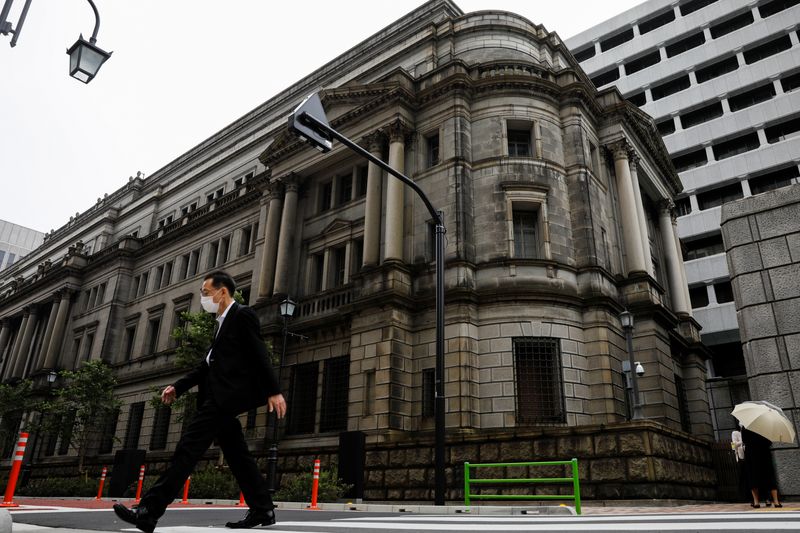By Leika Kihara
TOKYO (Reuters) - Japanese bank lending hit a record high in July as regional lenders continued to boost loans to small firms hit by the coronavirus pandemic, central bank data showed on Tuesday.
But the annual pace of increase in major banks' lending slowed as funding demand from big firms eased, suggesting that the wall of money printed by the Bank of Japan has helped address immediate corporate funding strains.
Total lending by banks and "shinkin" credit unions rose 6.3% in July compared with a year earlier, hitting a record 572.7 trillion yen, ($5.40 trillion) and accelerating from a 6.2% gain in June, BOJ data showed.
It was the fastest pace of growth since comparable data became available in 2001.
Major banks' lending was up 7.8% in July, slowing from a 8.6% gain in June. Lending by regional banks grew 5.1%, accelerating from a 4.7% increase in June and matching a record high in 1991, the data showed.
"Big firms' fund demand seems to have run its course. Some borrowers are also shifting to commercial paper and corporate bonds in raising funds," a BOJ official told reporters.
"Lending to smaller firms continues to rise as borrowers tap cheap loans with government guarantees, though the pace of increase will likely slow ahead," the official said.
The widespread fallout from the health crisis is tipping Japan into deep recession, having forced the government to compile a huge stimulus package and the BOJ to ease policy in March and April.
Private financial institutions have played a key role in channelling money to the economy by following government requests to offer loans against no collateral to cash-strapped firms, most of which would be backed by government guarantees.

($1 = 106.0600 yen)